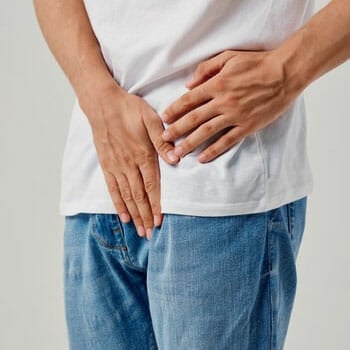What is Creatine and How Does it Work
Creatine is a widely used dietary supplement among athletes and gym-goers due to its ability to enhance muscle strength and performance. It naturally occurs in the body and can also be obtained through food sources like meat and fish. When consumed, creatine is converted into phosphocreatine, which aids in the production of ATP, the primary source of energy for muscle contractions.

The Link Between Creatine and Erectile Dysfunction
While creatine has proven to be safe and effective for most people, concerns over its potential impact on male sexual health, particularly erectile function, have emerged. Though it is important to note that scientific evidence supporting a direct correlation between creatine use and erectile dysfunction remains limited.
Possible Mechanisms Explained
1. Dehydration: One of the speculated causes of creatine-related erectile problems is dehydration. Creatine has a tendency to draw water into the muscles, potentially causing dehydration if an individual fails to consume adequate fluids. Dehydration may indirectly impact erectile function, although further research is needed to establish a firm connection.
2. Hormonal Imbalance: Creatine impacts the body's hormonal balance, mainly by increasing the levels of anabolic hormones such as testosterone. While higher testosterone levels are generally beneficial for males, there is a possibility of hormonal imbalances occurring, which in turn could affect sexual function.
3. Psychological Factors: Some individuals may experience erectile problems due to psychological factors related to creatine usage. Performance anxiety and stress associated with the pressure to perform at peak physical levels can contribute to erectile dysfunction.
Conclusion
While concerns have been raised regarding the potential link between creatine use and erectile dysfunction, it is important to approach this topic with caution. Existing research does not provide concrete evidence to support the claim that creatine directly causes erectile problems. Moreover, many individuals experience the benefits of creatine supplementation without any adverse effects on sexual health.
If you are considering using creatine or have noticed any changes in erectile function while using the supplement, it is advisable to consult with a healthcare professional who can provide personalized guidance based on your specific situation.
In summary, the relationship between creatine and erectile dysfunction requires more extensive research before any definitive conclusions can be made. It is crucial to prioritize your overall well-being and seek professional advice when making decisions regarding dietary supplementation and male sexual health.
Related FAQs about can creatine cause erectile dysfunction
Can creatine cause erectile dysfunction?
There is limited scientific evidence suggesting a direct link between creatine use and erectile dysfunction. Further research is needed to establish a definitive connection.
Does creatine dehydrate the body, leading to erectile problems?
Creatine has the potential to draw water into the muscles, but there is no clear evidence supporting a direct correlation between creatine-related dehydration and erectile dysfunction.
Can creatine affect hormone levels and cause erectile dysfunction?
While creatine supplementation can influence hormone levels, such as increasing testosterone, research on the exact impact of creatine on hormonal balance and erectile function is still inconclusive.
Do psychological factors play a role in creatine-related erectile problems?
Yes, psychological factors, such as performance anxiety and stress, can contribute to erectile dysfunction in some individuals using creatine or any other dietary supplement.
Should I be concerned about using creatine and its potential effects on erectile function?
There is no need for immediate concern. Many people have reported positive results from creatine supplementation without any negative impact on their sexual health. If you have specific concerns, it is always wise to consult a healthcare professional for personalized guidance.
Glossary about can creatine cause erectile dysfunction
1. Creatine: Creatine is a naturally occurring compound found in the body and obtained through food sources like meat and fish. It is also available as a dietary supplement and is popular among athletes and gym-goers due to its ability to enhance muscle strength and performance.
2. ATP: ATP stands for adenosine triphosphate and is the primary source of energy for muscle contractions. Creatine aids in the production of ATP by converting into phosphocreatine.
3. Erectile Dysfunction: Erectile dysfunction refers to the inability to achieve or sustain an erection sufficient for sexual intercourse. It can have various causes, including physiological and psychological factors.
4. Dehydration: Dehydration is a condition resulting from insufficient fluid intake or excessive fluid loss. In the context of creatine use, it is speculated that the supplement's water-drawing property may contribute to dehydration, which could indirectly affect erectile function.
5. Hormonal Imbalance: Hormonal imbalance refers to an abnormality or disruption in the levels or functioning of hormones in the body. Creatine can impact hormonal balance by increasing the production of anabolic hormones like testosterone, potentially leading to imbalances that may affect sexual function.
6. Performance Anxiety: Performance anxiety is a psychological condition characterized by excessive worry and fear of not being able to perform well in certain situations, such as sexual encounters. Some individuals may experience this anxiety related to the pressure to perform at peak physical levels while using creatine.
7. Testosterone: Testosterone is a hormone primarily associated with male reproductive function, although it is present in both males and females. It plays a crucial role in various bodily processes, including muscle growth and sexual function.
8. Supplementation: Supplementation refers to the act of complementing or augmenting a diet with additional substances, such as vitamins, minerals, or other compounds, aimed at improving overall health or achieving specific goals.
9. Healthcare Professional: A healthcare professional is an individual trained and qualified to provide medical care and advice. They can offer personalized guidance and recommendations regarding dietary supplementation, including creatine use, based on an individual's specific needs and circumstances.
10. Well-being: Well-being encompasses the overall state of one's physical, mental, and emotional health and happiness. Prioritizing well-being involves taking steps to maintain and improve one's overall quality of life.
